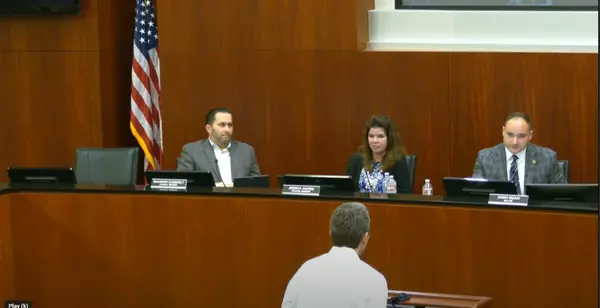North Texas Home Sales Up 16 Percent in Sept

I've been hearing a lot of agents say their business has slowed down lately. The interesting thing is that most agents believe their personal experience is an indication of a macroeconomic trend... Sometimes it actually is and sometimes it isn't. The newest article published by Steve Brown in the Dallas Morning News says home sales haven't slowed down at all. In fact, they're up 16%. If you're thinking about selling, I wouldn't wait. The market is hot. It will slow down. You're in the window of opportunity right now. If you're thinking about buying, don't let this fool you... Any amount of money you would have saved in a down market is NOTHING compared to the amount you will save by taking advantage of the 3.8% mortgage rates we currently have. If it jumps to 4.8%, you're spending roughly $130,000 more over the life of the loan. Also, the sooner you buy, the sooner you get to enjoy increasing property values. The longer you wait, the more you have to pay. The market is hot for a reason. Buyers and sellers are both winning. Enjoy it while it lasts.
Read MoreMENTION: How Buyers Get Blindsided - A Realtor.com Article Featuring Chandler Crouch Realtors

A while back I was contacted by a journalist with Realtor.com. They needed an expert opinion about items that a home buyer might overlook or things that buyers frequently forget to consider. Some of these things might surprise you... http://www.realtor.com/advice/buy/assuming-your-new-home-has-these-features-better-check-first/
Read MoreTexas 2nd in Relocations Last Year

Texas ranked 2nd in the nation for relocation activity last year according to the 2015 Texas Relocation Report released by the Texas Association of Realtors. This is great info. Here are the highlights: Texas is #2 in the country for population gains from out-of-state residents in 2015 (behind Florida). Texas ranked #3 for number of residents moving out of state in 2014 (behind California and Florida). Texas had a net gain of 103,465 out-of-state residents in 2014 Harris and Dallas counties are the two most active counties in Texas.
Read More-

Good morning. Today is the first business day that the new TRID / CFPB rules are in effect. I wanted to pass along this handy guide courtesy of Heidi Gilstrap and First American Title. This is an excellent tool to help explain and navigate the new changes. Please enjoy and feel free to contact us if you have any questions. Click here to see the CFPB TRID guide.
Read More Explaining the TREC 1-4 Residential Resale Contract 1 Paragraph at a Time

As detailed as this video is, it is not meant to be comprehensive and still only covers a fraction of what you need to know when using the 1-4 family residential resale contract promulgated by the Texas Real Estate Commission. To discuss negotiating techniques and best practices of how to use this contract, please call our office to talk with an expert Realtor today. As with any legal document or major decision, it's always best to consult an attorney for legal advice, don't rely on this video: (for time stamps for each paragraph, scroll down below the video) TREC 1-4 Residential Resale Contract (20-13) explained one paragraph at a time, line by line. This is the best and most comprehensive Texas real estate contract tutorial you can find. See time stamps below to jump directly to any section of the contract. Please like this video and share. Please comment, like, share, or contact us at http://www.chandlercrouch.comBonus Video: 3rd Party Financing Addendum explained one line at a time: https://youtu.be/y3PSLq-VUFESee below for time stamp of each paragraph: What is covered in this video 0:08When to use and when not to use 1:15Why it's important to learn 3:04Mindset 4:40How to use the contract 7:05Why Words Matter 9:21Addendum vs Amendment 10:15General information about the contracts 11:31Overview 14:09Contract Changes: 15:281. Parties 18:412. Property 23:583. Sales Price 28:004. License Holder Disclosure 33:085. Earnest Money 34:056. Title Policy and Survey 38:286. C. Survey 45:356. D. Objections 51:006. E. Title Notices 54:177. Property Condition 1:01:257. B. Seller's Disclosure Notice 1:03:327. H. Residential Services Contracts 1:12:278. Brokers' Fees 1:15:009. Closing 1:15:2910. Possession 1:17:2411. Special Provisions 1:21:1012. Settlement and other Expenses 1:23:4813. Prorations 1:30:3314. Casualty Loss 1:32:2015. Default 1:32:4416. Mediation 1:34:3517. Attorney's Fees 1:35:2518. Escrow 1:35:3619. Representations 1:40:3720. Federal Tax Requirements 1:41:1321. Notices 1:41:2922. Agreement of Parties 1:44:3223. Termination Option 1:45:3323. Changes to Paragraph 23 1:59:3624. Consult an Attorney Before Signing 2:00:57Executed Box / Effective date 2:03:34Signature lines 2:06:24Page 9 2:07:45Option Fee Receipt 2:11:10Contract and Earnest Money Receipt 2:11:28For questions, contact http://www.chandlercrouch.comTo get a copy of this contract, go here: https://www.trec.texas.gov/agency-information/forms-and-contractsPlease consult an attorney before using this contract. This video is not meant to be legal advice.Tags: Texas real estate commission sales contract
Read MoreThis is what's behind our residential growth...

What drives residential real estate growth? There are a lot of things, but one strong catalyst is commercial real estate growth. I suppose you could get into a chicken or the egg conversation, but one thing is for sure... Commercial real estate growth = job growth, and people follow jobs. Ahh, Texas... The land of opportunity. Last year was the best time nationally for commercial real estate in seven years, and Texas was the top market in the country according to a report by the Commercial Real Estate Development Association. More than 776,000 of Texas' jobs were created or tied to our commercial real estate growth. Texas had the largest direct commercial real estate expenditures last year at almost $42 billion. California is 2nd, but not even close with $13 billion. Why does all this matter to you? All of this growth creates demand on real estate which means your property value is going up. With interest rates as low as they are, this is a market where everybody is winning. You're in the right place at the right time. With buyers and sellers both winning, if you've ever considered a move, NOW is the time! Rising interest rates will be a game changer. The window of opportunity will close before you know it. If you would like to get an idea of how much equity you have, giving us a call. To get a really rough estimate, feel free to use our instant online home value estimator.
Read More-

What we do isn't always easy, but we love what we do. Video 1: Cat herding. What life is like without a system of best practices in place. Its like herding cats. Video 2: Geese herding. What life is like after a systematic approach using best practices and checklists are implemented. It may not create the heroic cat herder, but there are a lot less injuries and everybody arrives at the intended destination. Its monday... time to get back on the saddle. Video 1. Cat herding Video 2: Geese herding
Read More Unlocking the Secret Psychology of Buyers

It is important for sellers to consider the condition of their home from the perspective of a potential buyer because that is who we are trying to appeal to. The buyer has no previous knowledge of your house - no nostalgic feelings of home or memories of all the hard work that went into making it look really nice. They won’t know what kind of effort or money was invested into the home. Your home, to them, is now just a house, a product for sale. The buyer doesn’t especially care about your house. They are comparing your house with the last house they just saw and the next house they are going to see minutes after walking out the door. They have a relatively short amount of time to walk through a house and decide if it is worthy of one of the biggest financial and lifestyle impacting decisions they will ever make. There is no test drive, no try-before-you-buy opportunity. They are forced to decide if your house is worthy to provide a home for (in many cases) their spouse and children after only viewing the house for an average of 8 minutes. With such little time to logically evaluate every aspect of the house, the brain relies heavily on emotion and something called confirmation bias comes into play. Buyers experience certain emotions when they consider a house. When they drive up to the house, their mind starts trying to categorize the home into only 1 of 2 groups - “maybe” or “no.” If they first notice attractive aspects of the home or striking features, these thoughts often immediately transform into warm fuzzy feelings as they picture themselves in the home as if it is their own. If this happens, the brain naturally begins to filter out or minimize small negative aspects in order to justify its original conclusion. You’ll find people looking beyond problems to notice more positives. If, however, one of the first items that catch the buyer’s eye happens to be something unattractive, even as small as barren or overgrown landscaping, small cracks, even just dirty or peeling paint, they begin to focus increasingly on the negative aspects. Their brains begin to go out of its way to ignore positive aspects just to find more negative items to support the original inclination. This illogical emotional experience is a strong reason why the strategy of providing an “allowance” for repairs is ineffective. Buyers operate with a level of high expectation and a critical eye. A good strategy is to eliminate as many cosmetic issues that might catch their eye so that they have time to begin imagining it as their home before they notice an issue that might cause them to take pause.
Read MoreWhen is the best time of year to sell a house - Summer or Winter?

When should you list your home for sale? Most people believe that summer is the best time to list your home because that is when the real estate market is busy and active. We can see it moving quickly—yard signs pop up all over the place! And it’s true, more homes sell in the summer than they do in the fall or winter. That’s because more sellers decide to sell during those months, so naturally, more homes are sold! BUT does that actually mean that your ODDS of selling are higher during those months? What we really need to be looking at are the ODDS of your home selling. Even though more homes are being listed in the summer, a higher PERCENTAGE of homes are selling in the fall and winter months.As the data indicates, the percentage of homes that sell in the summer months isn’t always greater than the percentage of homes sold during the rest of the year. On the graph, the dark line represents homes listed during the month. The light line shows that homes don’t always sell at the same rate as they list.On the chart, you can see that the percentage of homes sold in fall and winter months are often better than in the summer months. Luckily for us, we are in a great market to be selling homes. People are always looking to buy homes in the Heritage area. Businesses have been moving to this area for years now and more are planning to come. This dynamic has created a housing demand that is stronger than any seasonal trend. Buyers are looking to buy right NOW.Don’t wait to list your home at the same time your competition is listing theirs. It’s important to lead the market and not follow it. For additional reading, check out 7 reasons to not sell your home to try and time the market.
Read More-

One branch of Chandler Crouch Realtors (REOmaven.com) works exclusively with HUD homes. REOmaven.com has been listing HUD homes since 2010 and is one of HUD’s most prominent HUD listing brokers in the DFW area. Many times, when a buyer will call the number on our For Sale sign, they don’t even realize that the home listed is a HUD home. So, what is a HUD Home? A HUD home is a home that went through foreclosure and is now government owned. The previous owner had an FHA Mortgage, which is insured by the government. That buyer quit making payments on their home. When the home failed to sell at the foreclosure auction, the bank filed a claim on the insurance for that mortgage and transferred ownership over to HUD – the government. What kinds of homes can be HUD homes? Currently, almost 1/3 of home mortgages come from FHA. FHA loans can be used for single-family, two-family, three-family, and four family homes. The limits on the loan amount for each type of home varies depending on where you live – in Tarrant County, the limit for the loan amount on Single-Family homes is $287,500. This amount will include many homes in Tarrant County – HUD homes can be anywhere! Who is eligible to buy a HUD home? There are no income restrictions or requirements to be able to purchase a HUD home. The buyer just needs to be able to qualify for whatever funding they are going to use to buy the home. HUD homes can be purchased using Cash or FHA, Conventional, USDA, or VA financing – just make sure to check with your lender about the repairs needed on the home and if your preferred financing will work with the HUD home of your choice. Are HUD homes the same thing as Section 8? No. All HUD homes are listed For Sale only – not to rent or rent to own. Section 8 is a program that provides housing vouchers to low-income families so they can rent suitable housing. Section 8 vouchers cannot be used to purchase a HUD home. However, both programs do operate out of the same government department which may be the cause of some confusion. HUD Homes are sold AS-IS This means that HUD is not going to make any repairs to the home before selling it. Most HUD homes need some sort of repair – whether it be cosmetic (carpeting, painting walls, etc.) or more substantial repairs (foundation, roof, plumbing, etc.) – you can find HUD homes in all sorts of conditions. No one is also not allowed to make any changes or repairs to the home before closing. Make sure your lender is aware of this before you start to acquire financing. What are some differences between HUD Home sales and conventional home sales? There are a few differences between how HUD sells homes and how traditional sales occur. First, HUD homes are sold AS-IS – no repairs can be made before closing. Second, HUD has specific deadlines for accepting offers on their available homes. Finally, HUD uses their own contracts – not the traditional TREC contracts. Otherwise, HUD acts much like a regular seller. Feel free to contact our office or ask your real estate agent for more details about these differences. Where do I go to find HUD homes available in my area? All of the HUD homes that are active and available on the market are listed at www.HUDhomestore.com. You can search for specific properties by the street name or you can search in whatever zip code or county you are looking for. For each property, you can find helpful information like the deadline to get a bid in on the property, the list price, what financing it is eligible for, and what repairs are needed to be eligible for FHA financing. From this website, you can also get information about HUD brokers in the area and your real estate agent can place a bid on a property for you. What does it mean to “place a bid” on a property? Placing a bid on a HUD home is very similar to making an offer on a conventional home. Placing a bid requires only some of your basic information and the amount you would like to place. You are not contractually obligated to buy the home if your bid is accepted. HUD’s bidding process is a sealed bid process, which means no one else can see your bid – not even the listing broker. HUD looks at all of the bids placed on a property at the end of the bidding period – this is determined by the bidding deadline. What happens if your bid is accepted? If HUD accepts your bid, your real estate agent will be notified the day after the bidding period ends. If your agent does not receive notification, they can log in at HUDhomestore.com to check on the status of the bid. If you do win the bid, you have 48 business hours to turn in your contract package, earnest money and proof of funds/prequalification letter. Then, the contract process proceeds from there to closing. HUD homes can be a great way to find a really good deal on a home. HUD homes are all around you and can be found in almost every neighborhood. Check with your agent to find about HUD homes in the area you are looking to buy!
Read More How to Prepare for and Begin a Successful Negotiation

Top negotiators focus on how the other party will perceive their offer and understand the negotiating process is just a very formal conversation between two people to expressing their wants and needs. Obtaining information about the other party’s situation, needs, wants, and mindset is crucial to determine how to best appeal to the other party. One of the biggest mistakes a Realtor can make is to limit their information source solely to the black and white terms printed on the offer (contract). I have found one of the best ways to learn about the other party is to pick up the phone and call the other Realtor. When representing a seller, these are a few of my favorite revealing questions to ask the buyer’s Realtor over the phone: How soon do you need a response to your offer? How did you arrive at this price? Do they have another house to sell? How long have you been looking for a house? How important is the closing date? Have you studied what percentage of list price homes are selling for in this area? Representing a buyer involves a whole other set of questions. Buying a home is a HUGE investment and it’s important to have as much information possible to make a smart decision. Do all the research you can to get the facts about the home for your client. Then, the best thing you can do for the buyer is to call the selling agent. Ask as many questions as you can. The answers to these questions can help your buyer make a strong offer that works with their budget. Good Questions to Consider: What is an acceptable offer? How long has it been on the market? Have they had a price drop? How much did they reduce the price? What percentage? Learn the situation of the seller – how much money do they need to get out of it and how quickly do they want to sell? Is it occupied or vacant? Why the seller is selling? When does your buyer need to move? When does the buyer need to close? What repairs need to be done? How many people own it? (in the case of an estate/dividing up profit) What is the Fair Market Value? What will it appraise for? What time of the week will you place the offer? Should you ask the seller to pay closing costs? Will the seller consider paying closing costs? Consider the net to the seller Does the buyer have cash on hand to pay for the closing costs? What repairs/changes can/will you ask for? What have the sellers done to the house to improve it? Who is the builder? What is the average utility cost? (ask the seller) What % of LP are homes selling for in the area? After you have all the answers you need and you’re getting ready to place the offer, consider these final two questions! If you don’t get the house – would you have wished you would have offered more? If you do get the house – would you wish you would have tried to get it for less? For additional market information or more negotiating tips, call or email today.
Read MoreHow to place an offer to buy a house

An offer is made when a buyer fills out the actual purchase/sell contract (blank TREC contract templates) with a price and terms that the buyer would be happy to agree to and delivers it to the seller. To “accept” the offer, the seller simply initials and signs the contract without making any changes to the price or terms. If the seller wishes to “counter offer,” he/she just marks out (single line strike-through) the terms that are not acceptable, writes in the new terms beside the old terms, and sends it back to the buyer. The buyer will either accept the new terms proposed by the seller or the counter offer process will continue until all terms are agreed upon or it becomes clear that an agreement cannot be reached.
Read More
Categories
- All Blogs 112
- Basics 17
- Buyer Psychology 3
- Career 1
- CCR in the News 13
- Community 18
- Downsizing 3
- Election 4
- Financial Advice 12
- Foreclosure 1
- Heritage Subdivision 3
- Home Refinancing 4
- Home Search 2
- How-to 22
- HUD Homes 2
- Just for fun 8
- Legislative Involvement 2
- Making an offer 5
- Mortgage 2
- Negotation 3
- Preparing to Sell 10
- Print media 3
- Property Tax 49
- Real Estate Market Report 23
- Robert Montoya 1
- Senior Housing 1
- State 2
- Static 1
- TAD Reform 7
- Tarrant County 9
- Testifying 2
Recent Posts










